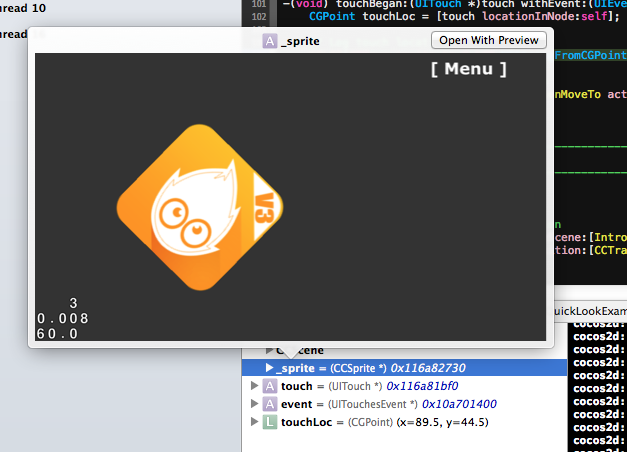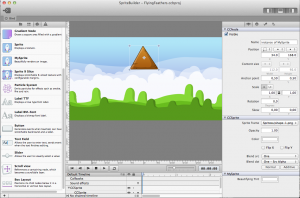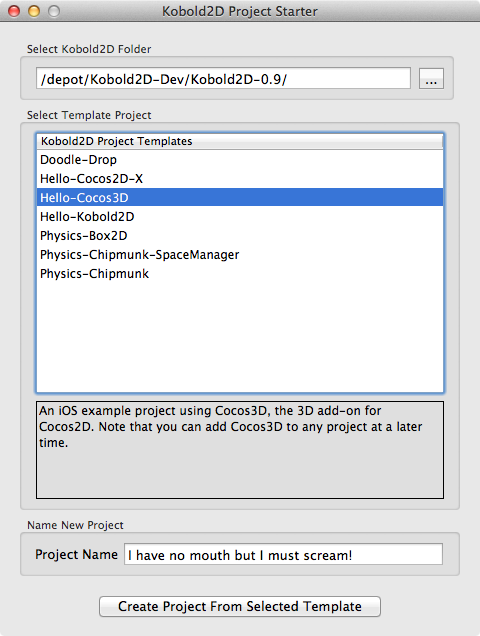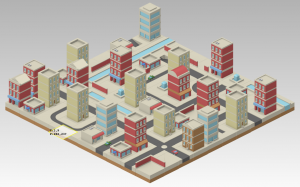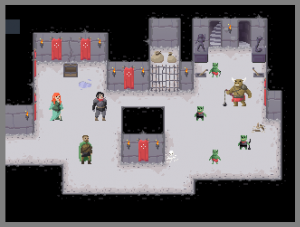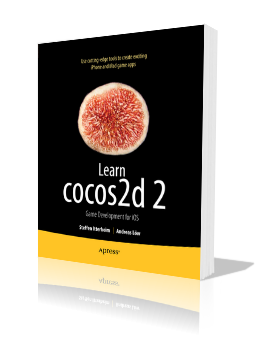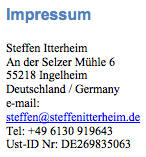Xcode’s QuickLook debugging feature allows you to get more details, and be more visual with your debugging data.
For example you can even grab a screenshot of the cocos2d screen and display it right within Xcode:
How QuickLook works
Following the recent release of SpriteBuilder and cocos2d-iphone v3 I’m sure some of you are itching to use SpriteBuilder by building the github version in Xcode rather than downloading it from the Mac App Store. Here’s how!
This is a post for developers who want to compile the SpriteBuilder code from github. To customize it, to debug issues, to add or gain access to new features; be it for their own use or to help the project, or both.
Previous experience with Xcode, Objective-C, cocos2d-iphone, git and github is assumed.
Download SpriteBuilder from github
The download and first-time compilation procedure is also detailed on the SpriteBuilder github page. You need to clone the project, then initialize the cocos2d-iphone submodule. The necessary Terminal commands are as follows:

Example ARC project. Pretty awesome.
Therefore I decided to enable ARC in all twelve standard cocos2d Xcode project templates for both cocos2d versions (v1.1 and v2.0), both platforms (iOS and Mac OS), both physics engines (Box2D and Chipmunk) and publish them on github.
You can download the ARC-enabled cocos2d template projects either as ZIP file or TAR file.
Another live report from the front…
LearnCocosTV - Episode 2: Fixing Bad
• Simple Multiplayer Data Sharing Project
• iDevBlogADay: Fast Pixel-Perfect Collision Detection
• Kobold2D 1.0.1 Released:
o KKPixelMaskSprite, KKScreenshot, Ad Banner rotation
o Solutions for “failed with exit code 1” linker errors
• Xcode Trips & Ticks
What do you do if your app doesn’t behave as it should, or even crashes?
Answer A: Post your problem in just about every programming forum.
Answer B: Use the Xcode Debugger to analyze what’s going wrong.
Since most of you already know how to do A I’ll focus on B in this Xcode 4 Debugging Crash-Course. It’s kind of aimed at beginning Xcode developers but that’s just because I hope - against better knowledge - that experienced developers already know that … thing … that debugger stuff. Ya know?
Scheduled for release on November 7th, 2011. Continue reading »
A couple months ago I wrote a tutorial explaining how to upgrade Cocos2D in an existing project.
I was able to cut the description down to only five concrete steps, but there’s still a lot of text to follow and caveats to consider. I designed Kobold2D exactly to make it easy to solve the issue of upgrading projects to newer versions of the game engine.
The Goal
Kobold2D users should never have to run a bash script, ever. Any project or asset management task most users will want to perform should be done with a visual tool.
The Problem
I mentioned before that I had problems turning the Kobold2D project templates into the Xcode 4 Project Template format. In fact, it turned out to be impossible due to the nature of Kobold2D’s workspace setup.
Since I want to have a wide variety of project templates in Kobold2D, and definitely more than the three rudimentary templates that cocos2d-iphone offers, I needed some way to allow users to start new projects based on a template.
The Solution
What I came up with is the Kobold2D Project Starter Tool:
Simple and elegant. This tool scans the projects in Kobold2D templates folder, which are regular Xcode projects with a common naming scheme (eg. _Hello-Kobold2D-Template_), and presents them to the user including a description.
Select a project template, give it a name and click Create. The tool will copy the template project to the Kobold2D folder next to all the other projects. All occurrences of _XXXX-Template_ are renamed to the user supplied project name (which is cleaned to remove illegal characters). Then the project is added to the Kobold2D.xcworkspace which the tool will open right away.
The Benefits
I think the biggest benefit by far is that anyone can turn his or her Xcode project into a template, simply by following the naming scheme. Anyone can create and distribute their own Kobold2D project templates.
Note: in the screenshot there are only 7 templates listed. I’ll definitely add more for the Kobold2D v1.0 release, most will be based on projects discussed in my Learn Cocos2D book. The first preview version (v0.9x) of Kobold2D will be available in about two weeks.



